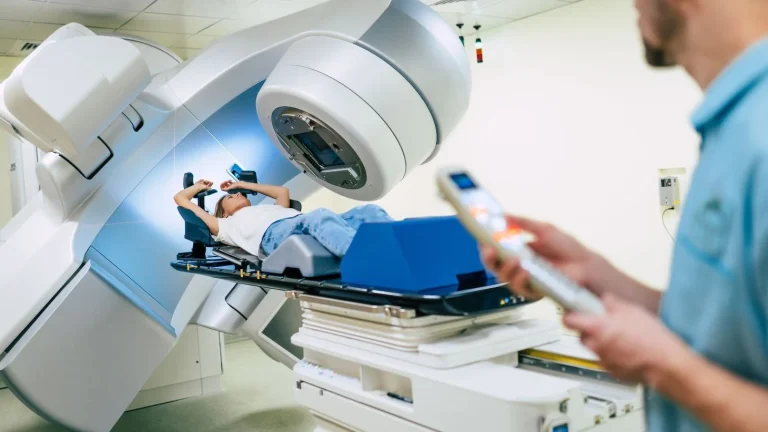The General Manager of Roche Nigeria, Dr Ladi Hameed, says the company’s ongoing collaboration with the National Health Insurance Authority (NHIA) aims to enhance cancer care and improve the wellbeing of patients across Nigeria.
Hameed made this known in an interview on Wednesday in Abuja.
He noted that the partnership would help reduce the need for patients to travel long distances to access quality cancer medications.
According to Hameed, Roche recently signed an expanded Memorandum of Understanding (MoU) with the NHIA, building on a previous agreement signed in 2021.
“The MoU is based on a shared vision to significantly increase the number of Nigerians who can access comprehensive cancer care under the NHIA.
“The partnership began as a pilot programme providing NHIA enrollees with access to innovative Roche cancer medicines through a cost-sharing model.
“We started in about seven centres, and now NHIA has agreed to expand to 22 centres.
“Through the insurance model, patients already receive coverage for surgery, radiotherapy, and some chemotherapy. Our programme adds access to innovative medicines,” Hameed said.
He explained that the expanded agreement also focused on streamlining the enrolment process for newly diagnosed patients and making specialised tests, such as immunohistochemistry, as well as treatment regimens, including Roche’s therapies, more accessible and affordable.
“It also provides access to patient navigation and counselling services, an important, but often overlooked, component of cancer treatment.
“The expanded MoU is another powerful tool in the fight against breast cancer, which remains the leading cause of death among Nigerian women,” he said.
Hameed noted that more than 200 patients had benefited from the pilot centres so far, with data showing that most are now accessing care earlier due to NHIA coverage.
“More than 80 per cent of those treated under the programme are early-stage cancer patients.
“We’ve seen more Stage 1 and Stage 2 cases compared to later stages.
“This has been especially impactful for patients aged 30 to 60, who are now able to complete treatment, recover, and remain active contributors to the economy.”
He also highlighted ongoing collaborations with key government agencies and private sector partners, including the Ministry of Health and Social Welfare.
He said as part of efforts to improve access to diagnostic services, Roche was investing in six immunohistochemistry machines across Nigeria’s geopolitical zones.
“Three machines have already been installed and are undergoing training at the University of Port Harcourt Teaching Hospital (UPTH), National Hospital Abuja, and Obafemi Awolowo University Teaching Hospital (OAUTH), Ile-Ife.
“Additionally, Roche is supporting the Breast Cancer Access Navigation and Testing Programme, which provides free diagnostic testing, nutritional advice, and navigation services for eligible breast cancer patients.
“Roche is also working with NHIA to establish patient navigation and counselling centres nationwide to help patients better understand their treatment journey and manage the emotional impact of diagnosis,” Hameed added.
The original seven pilot centres included National Hospital Abuja, Ahmadu Bello University Teaching Hospital (ABUTH), Zaria, and University of Benin Teaching Hospital.
Others are University College Hospital (UCH), Ibadan; Federal Teaching Hospital (FTH), Gombe; Aminu Kano Teaching Hospital (AKTH), Kano; and University of Nigeria Teaching Hospital (UNTH), Enugu.
The 15 new centres include Federal Medical Centre Ebute Meta, Lagos; University of Calabar Teaching Hospital, Usmanu Danfodiyo University Teaching Hospital, Sokoto; Jos University Teaching Hospital; OAUTH; and UPTH.
Others are University of Abuja Teaching Hospital (UATH), Federal Medical Centre Owerri, University of Ilorin Teaching Hospital, Federal Medical Centre Jabi, Federal Medical Centre Makurdi, and four additional private centres that will be accredited by NHIA.
NAN


